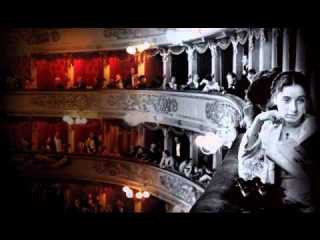Alfredo Catalani – La falce (Egloga orientale in 1 atto) [1966]
Alfredo Catalani – La falce (egloga orientale in 1 atto) [1966]

1. Preludio orchestrale 2. Tutti son morti 3. Pace, pace, riposa 4. Tu m’hai rapito, o vergine 5. Questa e la placida false 6. Andiamo ... andiamo Zohra, fanciulla araba - Antonietta Cannarile Berdini Seid, un falciatore - Luigi Infantino Orchestra e Coro della RAI di Milano Ferruccio Scàglia – conductor
The quality of the orchestra is important in this opera as it starts out with a prologo longer than 12 minutes in an opera that only has thirty minutes more to go. The piece is exactly what the name says: a prologue that is a symphonic poem that tells us all what has happened beforehand : an attack on a caravan led by Muhammed ibn Abdullah (yes, the founder himself) that fails because of a sandstorm and the intervention of angels. The battle leaves the heroine all alone in the world as her family is wiped out. The tenor appears wearing a scythe (i.e., la Falce) but he is not a messenger of death but of life. The girl and the boy fall in love and they follow the victorious caravan starting their new life together.
At the time, the 21-year old Catalani knew the earlier operas of Wagner and, during a stay in Paris, he had heard some of the effects the older Massenet used (though that composer’s first oriental opera – Le Roi de Lahore – premièred two years after La Falce). Catalani’s use of the orchestra is refined and far from the big guitar of some of his contemporaries. He never was a great tune-smith though his best known opera, La Wally, has one big hit. Nonetheless he employs mostly melodic recitatives changing into arioso without formal beginnings or endings in the traditional aria-style. Though the tenor has more declamatory lines than the more lyrical ones of the soprano, their voices nicely join together from time to time in the honoured Italian way. It may be a youthful piece; but it is one that grows on you with repeated hearings. ---Jan Neckers, operatoday.com
download (mp3 @320 kbs):
yandex 4shared mega mediafire cloudmailru uplea ge.tt








